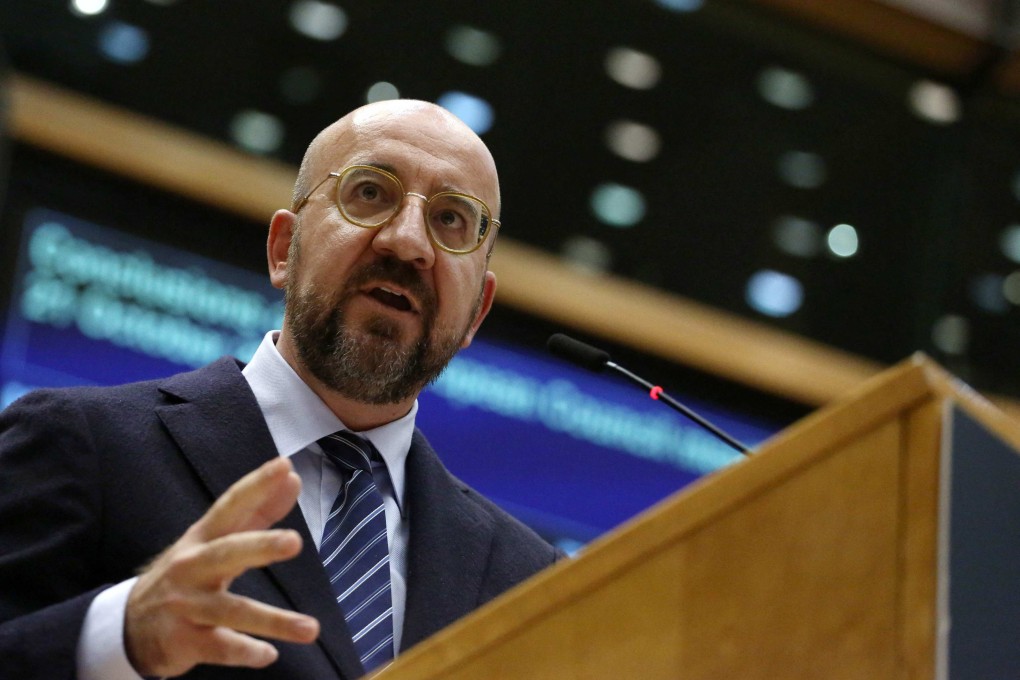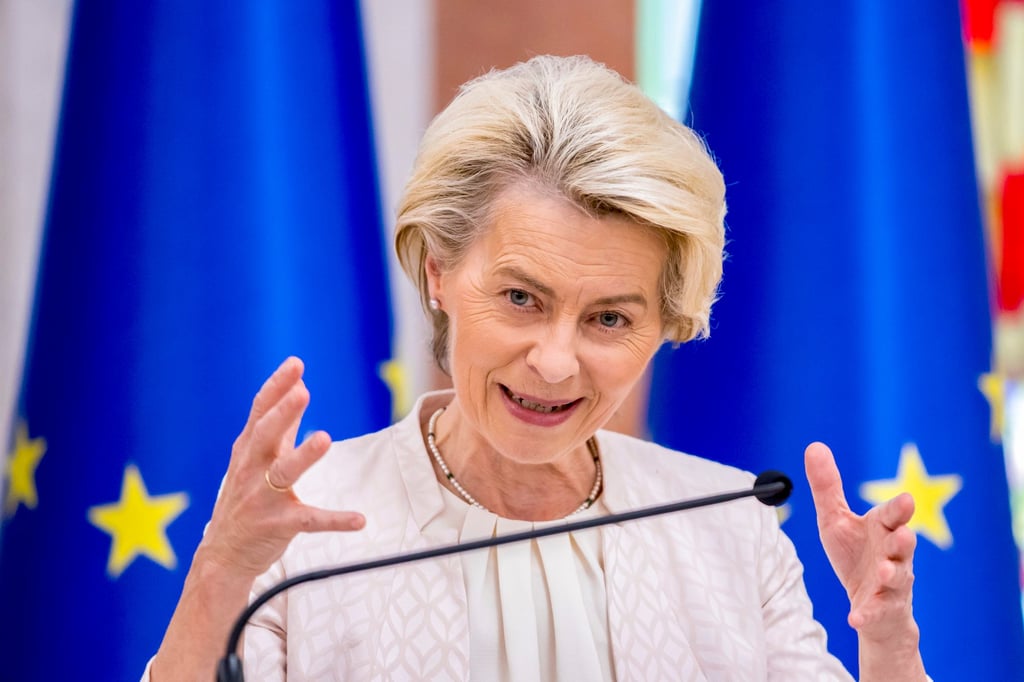EU seeks to project united approach towards China ahead of high-level Brussels meetings
- Bloc aims to ‘de-risk and diversify’ for mutual economic benefit yet not ‘decouple or turn inwards’, according to leaked draft statement seen by Post
- But concerns within EU persist regarding China’s alliance with Russia amid Ukraine war as well as Beijing’s actions in Taiwan Strait and on human rights

Brussels is eager to project a united EU approach in its China policies despite some divergent positions among members, as the 27-nation bloc’s leaders gather in the Belgian capital for a two-day summit.
In a letter to EU leaders ahead of the high-level meetings, EU Council President Charles Michel said discussions on China – expected to be held on Friday – would give an opportunity to “reconfirm” the bloc’s “broad and united stance” towards the country.
European Union leaders were expected to assert that “engagements with China will continue on global challenges”, according to a leaked EU draft of conclusions seen by the Post.
The bloc would “de-risk and diversify where necessary and appropriate, in order to achieve a balanced, reciprocal and mutually beneficial economic relationship” with Beijing, the statement read.

“The European Union does not intend to decouple or to turn inwards,” it added. “Its policies are not designed to harm China nor to thwart China’s economic progress and development.”